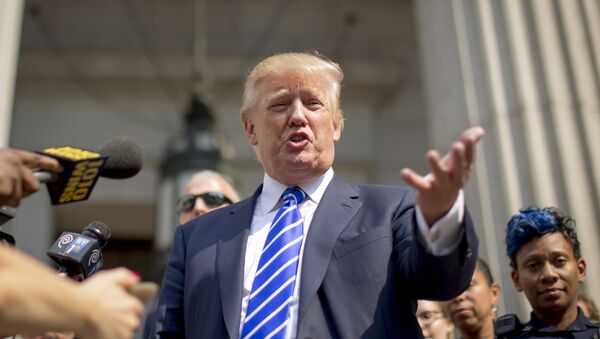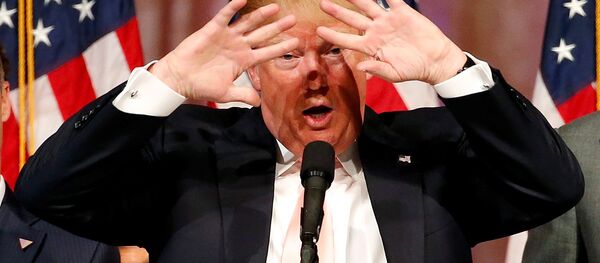Kristian Rouz – The electoral victory of Donald Trump in the US was mainly secured by his reform agenda, which won him the decisive vote in the “Rust Belt” states, which have been mired in economic despair and lower quality of life for the past two decades.
Trump’s election as new US President in November 2016 triggered an immediate major rally in international bond markets, because domestic US and international investors perceived Trump as an unpredictable personality, meaning higher expectations of economic volatility across the globe.
However, the appeal of safe haven fixed-income investment assets is fading quickly: bond prices are bound to fall, and yields are poised to advance along with the US Fed’s base borrowing costs.
“The upside potential on bonds is very limited at this point, but the downside potential is big, and you can lose a lot,” Jean-Marie Mercadal of OFI Asset Management in Paris said.
Why the value of both governmental and corporate bonds will likely fall? The Trump-proposed fiscal stimulus plan means higher spending from the US budget, which will be financed through increased borrowing by the federal government, mostly in the form of issuance of US Treasury notes. The higher projected supply of Treasuries will render them cheaper. Simultaneously, the US Federal Reserve, one of the biggest holders of the US debt in the past eight years, is adamant to reduce their balance sheet, meaning they are no longer capable of absorbing the issuance of federal bonds in order to support their market value.
For global investors this all means higher appeal of stocks, while debt is currently something to get rid of.
Regarding the global currency trading, there is still a lot of uncertainty. On the one hand, Trump’s policies of fiscal stimulus will push the dollar higher against its peers. On the other, greater isolationism and economic protectionism might result in a collapse in the dollar’s FX rate, quite beneficial for the US economy given the currently huge foreign trade deficit it is running. Trump himself referred to the greenback as “too strong,” which is generally harmful for the US economy.
Should the dollar appreciate, the US economy will likely slide into a recession as domestic manufacturers and exporters will see shrinking revenues, and corporate profits will tumble after having shown some recovery in 4Q16. A recession in the US will likely drag the rest of world into a global recession similar to the 2007-2008 scenario.
A devaluation of the dollar, however, will spur the US economic growth and boost its export potential and industrial capacity, but will restrict the access of overseas enterprises to the US market.
Economic reform expectations are stirring hopes for higher profitability of stocks, with private sector companies leading the economic expansion in the US and its main trading partners. In Europe, Stoxx 600 has gained 10pc amidst the private sector optimism, also supporting the expectations of higher demand for natural resources.
Commodity economies will, therefore, thrive should the Trump administration succeed in their reform effort. An industrial renaissance in the US and post-Brexit Britain and trade disruptions, stemming from higher protectionism, will render natural resources, mainly, oil and industrial metals, more expensive, an effect amplified by a possible dollar devaluation.
“Markets have high expectations about Trump’s policies and there’s a risk of disappointment in the implementation of these policies, if they’re not as strong as hoped for or if they get delayed by Congress,” Patrick Moonen of NN Investment Partners said.
Indeed, the Republican Congress might turn out to be too frugal to unanimously approve Trump’s aspirations in introduce a massive fiscal stimulus. The GOP is traditionally very sceptical of higher budget expenditures.
Meanwhile, many newly-industrialised emerging markets, which are either mired in gradual cooling, like mainland China, or economic policy deficiencies, like India, will struggle to sell their manufactured goods abroad amidst more restrictive policies and rebounds in domestic manufacturing in the advanced economies. Such a situation will prove to be a drag on the global growth rate, emphasising the importance of trade between economies that do not compete selling the same goods in the global market.
Trumponomics in the US might, subsequently, result in the unlikeliest trade pacts to be concluded in the coming years. Which these would be are hard to predict, but it is quite likely that the prominence of global trade as main driver of economic growth will decline, and most economies, in order to succeed, will have to rely on their domestic market.







